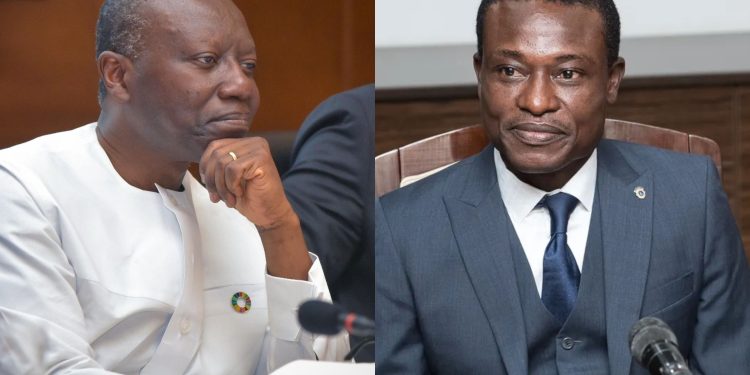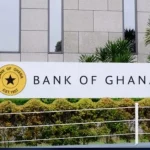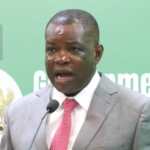The Office of the Special Prosecutor (OSP) has issued a firm directive to former Finance Minister Ken Ofori-Atta, ordering him to report in person to its headquarters on Monday, June 2, 2025.
In a statement released on Sunday, June 1, the OSP warned that failure to comply with the directive will trigger a series of serious legal consequences, including reinstating Mr. Ofori-Atta on its list of wanted persons and declaring him a fugitive from justice.
The office also revealed that it would initiate processes to issue an INTERPOL Red Notice, which could lead to his arrest and extradition from any country where he may be located.
This development comes amid ongoing investigations into allegations of corruption and abuse of office involving the former minister.
Mr. Ofori-Atta was previously removed from the OSP’s wanted list after what authorities described as “significant cooperation” and the provision of a definite return date to Ghana.
However, with the new deadline approaching, the Special Prosecutor has signaled that this cooperation will be reassessed should he fail to appear.
The investigations involve several high-profile issues, including revenue assurance in the petroleum and minerals sectors specifically the contractual arrangements between Strategic Mobilisation Ghana Limited and the Ghana Revenue Authority (GRA).
The probe also covers the termination of a contract between the Electricity Company of Ghana and Beijing Xiao Cheng Technology (BXC), procurement irregularities related to the National Cathedral project, the Ministry of Health’s ambulance deal with Service Ghana Auto Group Limited, and the management of the GRA’s Tax P-Fund Account.
The timeline of events began in January 2025, when the OSP formally notified Mr. Ofori-Atta that he was a suspect in five separate investigations and invited him to appear on February 10.
His legal team responded by stating that he was out of the country for medical treatment and could not return anytime soon.
The OSP rejected this explanation and demanded a definitive return date, stressing that legal counsel could not substitute for his physical presence in a criminal matter.
Subsequent communications included a doctor’s note that failed to clarify when he would return, leading the OSP to issue a warrant and declare him wanted on February 12. On February 18, Mr. Ofori-Atta contacted the OSP, offering a firm return date in May.
The office accepted this assurance and removed him from the list of wanted persons.
In March 2025, Mr. Ofori-Atta launched a legal challenge, suing the OSP and its head, alleging that the declaration branding him as wanted was unlawful.
He demanded the removal of related posts from the OSP’s official social media channels.
The Human Rights Court later heard an application to prevent the OSP from making such declarations again.
Now, with the June 2 deadline set, the OSP has reiterated its expectations.
Should Mr. Ofori-Atta fail to report, the office will reactivate the legal actions suspended earlier, potentially escalating the case to international enforcement agencies.
















